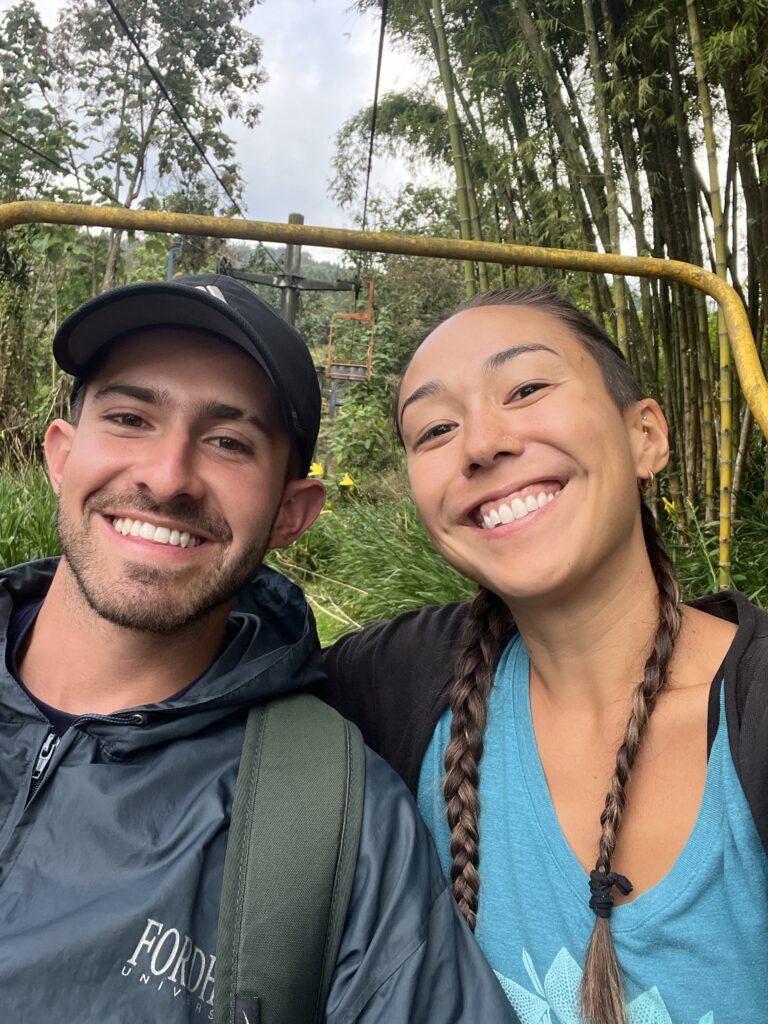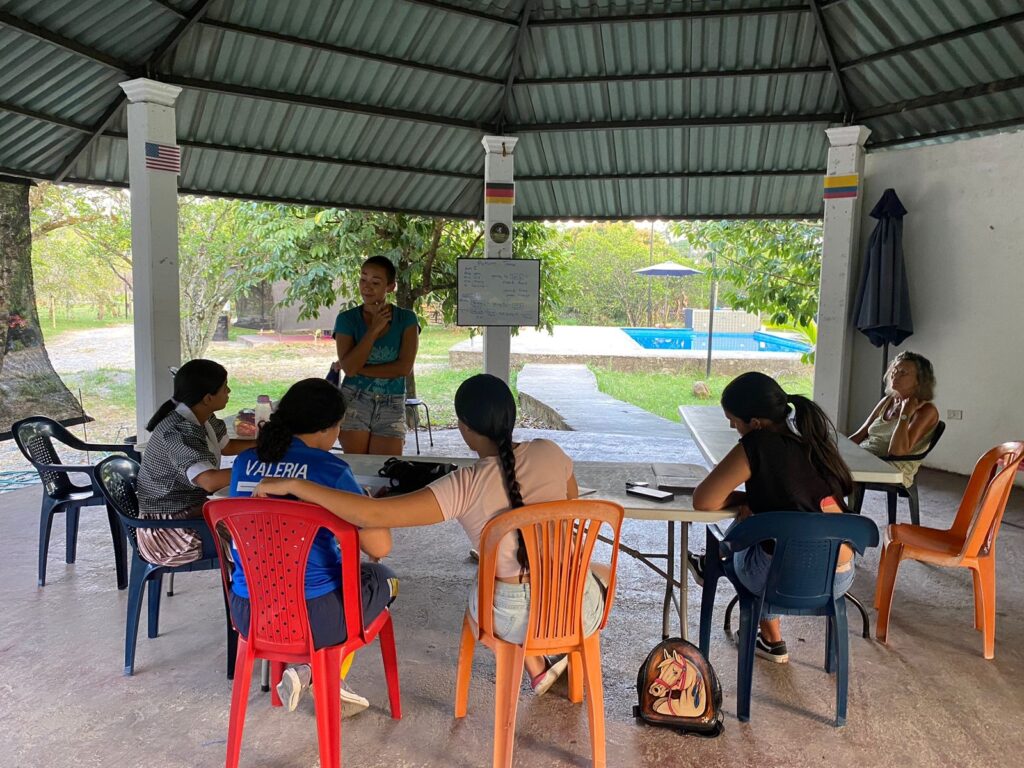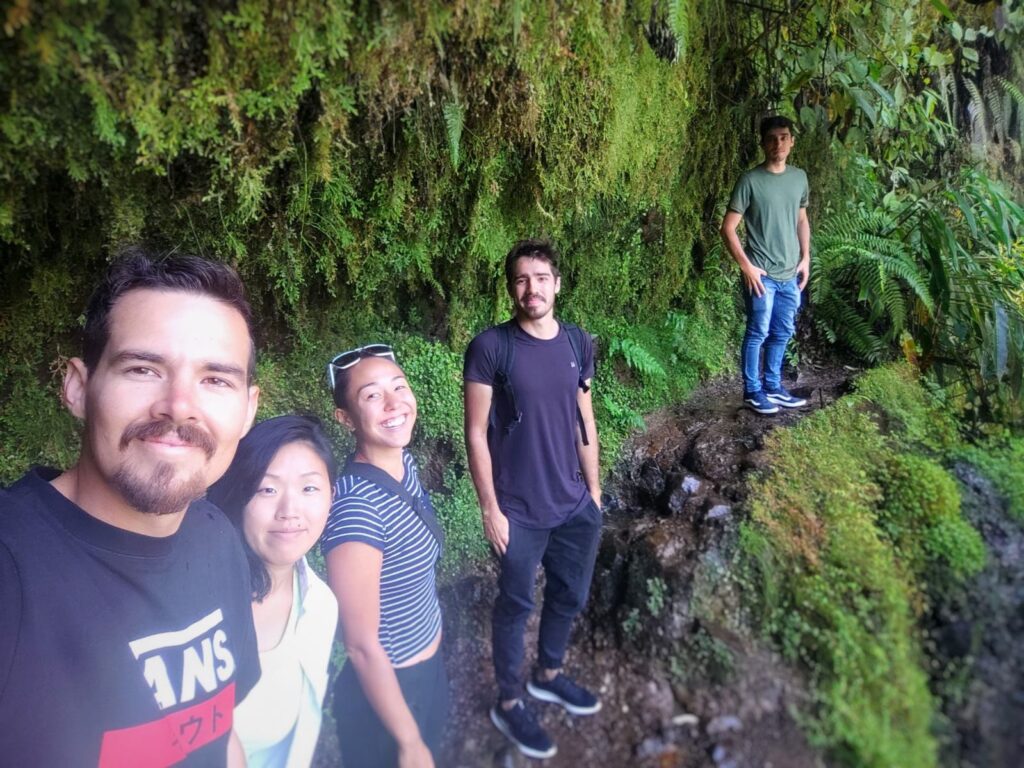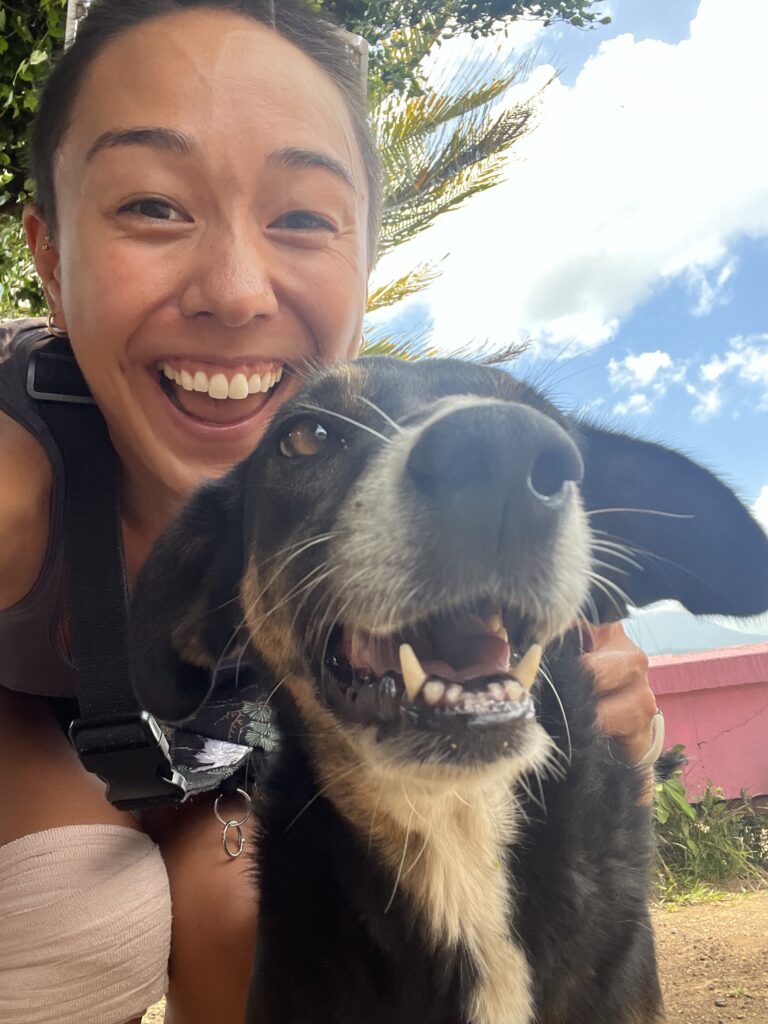Suddenly Things Came Together
Sometime around March, things really started to click. Learning Spanish has been a gradual, distinctly non-linear process of accumulation. Progress has come in fits and starts. There have been long periods where I felt like I was just spinning my wheels, when I felt frustrated that I wasn’t learning as fast as I thought I should be. But recently, I’ve noticed that it feels like I’ve turned a corner. I’ve passed some invisible threshold, and suddenly I feel this palpable ease. I’ve moved beyond “survival Spanish,” and I’ve started to feel comfortable having normal conversations with just about everybody. I’m not afraid to make small talk. I don’t have to ask people to repeat themselves quite so much anymore. My vocabulary has grown enough that I’m not constantly playing the game where I talk my way around the word I’m looking for. I still struggle to understand people with thicker regional accents, and sometimes I trip over pronunciation, or mis-gender words, or forget to pluralize adjectives, or use the wrong article, or forget one altogether. I’m still not fluent, but poco a poco, things are getting a lot easier.
Markers of Fluency
Fluency is obviously my primary objective, but what does it mean to be fluent? In the last year, I’ve met a lot of people who speak English as a second language. It’s been interesting to note the differences in skill levels, even between two people whom I’d consider to both be “fluent” speakers. I’ve realized that fluency is a bit of a moving target. It’s a vague concept, and I think (like most things) it’s defined more by a series of milestones on a spectrum than a distinct dichotomy between “not fluent” and “fluent.” That is, I could attain what might be called fluency in Spanish, but still have a lot of room to grow. The kind of fluency I’d like to achieve is characterized by ease, agility, and occasional elegance. I’d love to be able to manage the Spanish language the way I do English, but that’s a long way off. So for now, I’ll satisfy myself with achieving smaller goals.
One of the markers of fluency that I’ve been really conscious of is the ability to eavesdrop. To listen in on a conversation that isn’t intended for me. When I first started learning, this was nearly impossible. I could pretty much only understand people who were consciously and significantly adjusting their speech for my beginner level. Eavesdropping on two native speaker friends gossiping in a store is a completely different level of understanding. It requires a strong bank of vocabulary, grammar, and colloquialisms, as well as experience parsing words and phrases and inferring context. To be honest, this is still difficult for me. I often will intentionally try to eavesdrop on conversations happening around me, and sometimes I still can only get the gist. But sometimes I understand almost everything, and that’s pretty good progress.
The next level will be understanding without trying or intending to. The distinction is the difference between eavesdropping and overhearing. If I’m reading a book, and someone next to me is having a loud conversation in English, it’s hard to focus on what I’m reading. My understanding is involuntary, and English inputs can intrude on my thoughts. By contrast, it’s still pretty easy for me to disengage and “turn off” my processing of Spanish. If I stop paying attention, I largely stop understanding. When people are speaking Spanish all around me, I can still focus on my book. But there will come a day when I can’t do that, and I’m (mostly) looking forward to it.
Another fluency milestone that people talk about a lot is dreaming in the language you’re learning. I very rarely remember my dreams, but I recently had my first one in Spanish. In the dream, I was with my grandmother, who passed away many years ago, and she was speaking to me in a mixture of Spanish and English. I don’t remember what we talked about, but I do remember having a moment of recognition in the dream, thinking, “Wait, what language are we speaking? What languages do I know?”
It’s True What They Say About Romance
In my last post about my Spanish journey, I wrote that I felt like I was on the edge of leveling up, like the pace of my learning was about to accelerate. And I was right. Recently, I’ve hit a period where everything has been coming together. So what happened? I think it’s a few things. The gradual accretion of vocabulary, grammar, and practice helped. Staying in one country for a long time helped. But I’d say the number-one contributing factor was finding myself a Colombian boyfriend. He speaks great English, but we almost always speak to each other in Spanish, and the daily practice over several months has made a huge difference for me. The rumors are true. Dating a native speaker is a very effective way to learn a language. I also can’t overstate the benefit of having a conversation partner who 1) understands exactly where I’m at skill-wise and 2) has a vested interest in my growth and improvement, so 3) tailors his speech for my learning, and 4) is comfortable and willing to correct me when I make mistakes. I know how much patience and hard work all that takes, and it’s such an incredible gift to give someone. Thanks, LuisMi.

Living and Working in a Spanish-Speaking Context
Another of the big factors that helped to turn the corner was spending five weeks living with a family in a small Colombian town called Guamal. I volunteered teaching in their English school through Workaway. Of the seven members of the family, the oldest daughter speaks the best English, though her siblings also do quite well. Their parents speak and understand a bit, and their grandparents little to none. While I was staying with them, I was rooming with a small group of other foreign volunteers, but we were the only foreigners in town. Our conversations over breakfast with our host family were in Spanish, and sometimes we’d utilize the classroom whiteboard to supplement our exchange of vocabulary and grammar concepts. I was teaching English to beginner and intermediate students, so though I spoke mostly in English in our lessons, I was still using Spanish to supplement my explanations. These daily conversations with my host family and my students contributed significantly to my progress, and by the end of my time with them, I noticed that I was feeling a lot more comfortable.

Baselang Online Spanish School
Finally, during my time in Guamal, I signed up for an online Spanish school called BaseLang. A fellow traveler friend who I met on the Caribbean coast of Colombia told me about the site, and I was fortunate to be able to piggyback on his thorough research. BaseLang’s pricing model is a great value for someone who is willing and able to dedicate a lot of time to learning. For $180 USD per month, you can take unlimited one-on-one lessons via video call. You can book a lesson with a few minutes’ notice, and there are dozens of native speaker instructors to choose from.
During the month of February, I spent about two hours every weekday in BaseLang lessons. BaseLang has a pretty robust curriculum of vocabulary and grammar, and for each lesson, you can choose whether you’d like to follow the curriculum or simply have a conversation with your instructor. It was BaseLang that finally helped me to get a handle on subjunctive verbs, which was my major grammatical weakness earlier in the year. The subjunctive mood is a complex topic that I think would have taken me a really long time to pick up organically through conversation, so taking lessons was definitely the right choice for me. I still need a lot of practice, but I’m feeling more comfortable with it lately.
Looking back at my experience attending in-person Spanish school and living in homestays in Guatemala, I’m still happy I did it. But I think that the Baselang-Workaway combination is a great way to have a similar educational and cultural experience for a lot less money.
Noticing a Difference after Colombia
When I arrived in Costa Rica, my first stop after my long stint in Colombia, I was aware that something had shifted. I spent a week hanging out with my high-school-acquaintance-turned-new-friend Mari, and I was kind of surprised and very excited to be able to have wide-ranging, deep, and interesting conversations in Spanish with her and her husband’s family. Being able to understand almost all of what they were saying to each other and to participate felt huge.

My next stop was Nicaragua. It reminded me a lot of Guatemala, which was where I spent the first six weeks of my trip. As I drew comparisons between strikingly similar Spanish colonial cities in Guatemala and Nicaragua, I also found myself comparing the Sachi I was 10 months ago in Guatemala to who I am now. Some of the biggest differences had to do with how much Spanish I speak now compared to then, and the situations in which I’m comfortable where I wasn’t before. For example, in Guatemala, I traveled between cities in shared shuttles for tourists. They’re convenient and comfortable, but pretty expensive compared to the public buses that locals use. Ten months in, I feel comfortable navigating public transit, asking for help and recommendations regarding bus routes and schedules. I save money that way, but beyond that, I just feel so capable and independent when I’m the only extranjera in a bus full of locals. Admittedly, I had some public transportation experiences in Nicaragua that I’d just as soon not repeat. But I definitely still savor the brief look of surprise I get when my Spanish is better than someone assumed.
Emotions and the Four Stages of Learning
There’s a model that I like, which describes the process of learning something in four psychological stages. First, unconscious incompetence: You suck, and you have no idea. This is someone who has not yet started learning. Next comes conscious incompetence: You still suck, but you’re trying, and you’re aware of the big gap between where you are and where you want to be. I would say that I spent the majority of the last year in this stage. Next comes conscious competence: You’re managing pretty well, but you still really have to think about it. I feel like this is where I am now. Finally is unconscious competence: You’re skilled and it doesn’t take much mental real estate. That’s fluency.
In my last post about learning Spanish, I described the emotions I was feeling in that conscious incompetence stage of learning. There was a lot of frustration, with sprinkles of elation. Lately, I’m feeling less frustrated. I’m more able to field what comes my way. Sometimes if I’m tired, I’m conscious of it being a lot harder to speak and understand. But generally, I’m feeling comfortable, and with that comfort has come a kind of relief. I know I still have a long way to go, but I feel like I can catch my breath. I’m not anxious about every interaction, and I don’t feel embarrassed about asking for help. I still have little bursts of elation and pride when I accomplish something in Spanish that was recently out of my reach. And with a little over a month left in my Latin American adventure, I feel like I’ve achieved what I set out to, and that feels amazing.
